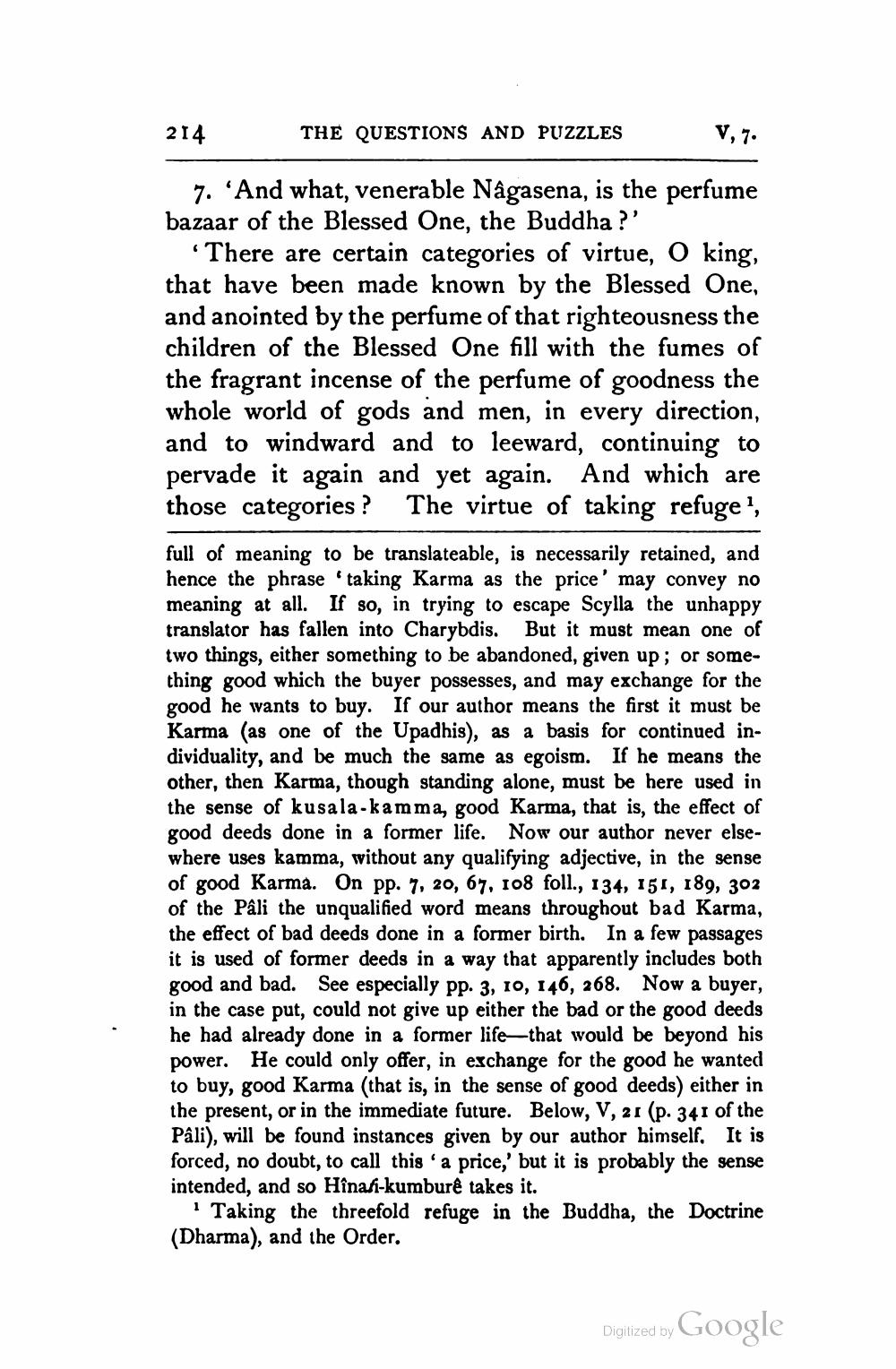________________
214
THE QUESTIONS AND PUZZLES
V, 7.
7. 'And what, venerable Nâgasena, is the perfume bazaar of the Blessed One, the Buddha ?
"There are certain categories of virtue, O king, that have been made known by the Blessed One, and anointed by the perfume of that righteousness the children of the Blessed One fill with the fumes of the fragrant incense of the perfume of goodness the whole world of gods and men, in every direction, and to windward and to leeward, continuing to pervade it again and yet again. And which are those categories? The virtue of taking refuge!, full of meaning to be translateable, is necessarily retained, and hence the phrase 'taking Karma as the price' may convey no meaning at all. If so, in trying to escape Scylla the unhappy translator has fallen into Charybdis. But it must mean one of two things, either something to be abandoned, given up; or something good which the buyer possesses, and may exchange for the good he wants to buy. If our author means the first it must be Karma (as one of the Upadhis), as a basis for continued individuality, and be much the same as egoism. If he means the other, then Karma, though standing alone, must be here used in the sense of kusala-kamma, good Karma, that is, the effect of good deeds done in a former life. Now our author never elsewhere uses kamma, without any qualifying adjective, in the sense of good Karma. On pp. 7, 20, 67, 108 foll., 134, 151, 189, 302 of the Pali the unqualified word means throughout bad Karma, the effect of bad deeds done in a former birth. In a few passages it is used of former deeds in a way that apparently includes both good and bad. See especially pp. 3, 10, 146, 268. Now a buyer, in the case put, could not give up either the bad or the good deeds he had already done in a former life that would be beyond his power. He could only offer, in exchange for the good he wanted to buy, good Karma (that is, in the sense of good deeds) either in the present, or in the immediate future. Below, V, 21 (p. 341 of the Pali), will be found instances given by our author himself. It is forced, no doubt, to call this a price,' but it is probably the sense intended, and so Hînafi-kumburê takes it.
Taking the threefold refuge in the Buddha, the Doctrine (Dharma), and the Order.
Digitized by Google




